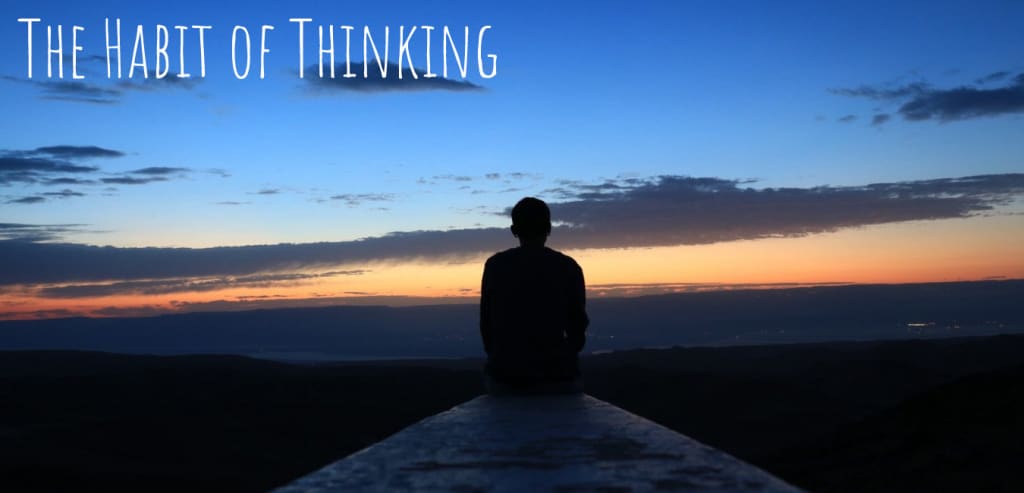
We get into the habit of living before acquiring the habit of thinking.
- Camus
The Habit of Living
In The Myth of Sisyphus: and other essays, Albert Camus points out that we “get into the habit of living before acquiring the habit of thinking.”
We are born, and we find ourselves in the world, in a community, full of meaning, practices, and traditions. We are, as Jean-Paul Sartre once claimed, “Thrown into existence.”
Before we are able to think for ourselves, before we are fully conscious and self-aware, before we form our first memories, the processes of socialization and social conditioning have already started to exert their influence upon us. We are, in other words, taught to view the world a certain way, to see things from a certain perspective, well before we even understand that other points of view, other interpretations, are possible.
An individual might, for example, grow up in a religious household. They might spend their formative years in a family that values achievements and markers of success. Their early years might be filled with people telling them that they need to go to college, or that they need to earn high marks in school, or…
In truth, it doesn’t matter what your specific circumstances happened to be. That fact is, we are all influenced by outside factors, social practices, social pressures, expectations, and norms. We start to formulate a picture of the world, of how we should act and behave—we “get into the habit of living”—well before we start actually thinking about what life means, about what we value, and about what matters to us.
“We get into the habit of living,” of doing things a certain way, of being in the world, without ever stopping to consider whether the life we are living is right for us. When we live our lives without thinking about life, our own goals, hopes, and values may not necessarily be a reflection of what we actually want, hope for, or value.
our own goals, hopes, and values may not necessarily be a reflection of what we actually want, hope for, or value.
Camus points out that a “world that can be explained even with bad reasons is a familiar world.” Even when we recognize that the values and meanings we’ve adopted aren’t right for us, we nevertheless hold onto them simply because the prospect of changing, of thinking for ourselves, is too daunting. What we find normal, comfortable, secure, is often favored even when our normal life is an unhappy life, not our own life.
In the modern, technological world, where information is passed from screen to screen instantaneously, finding the time and the quiet needed to think is a challenge in and of itself. There is always noise, a seeming infinite number of possible distractions, and all of these reaffirm certain values and ways of looking at things.
Acquiring the Habit of Thinking
Socrates said that the “unexamined life is not worth living.” He suggests that it is only through examination, through self-reflection and thinking, that life is worthwhile.
If we want to live a good life, to live our own life, then we need to start making time to think, to reflect, and we need to start taking our lives seriously. Asking questions, exploring our values, exploring our wants and goals, is a crucial part of self-examination and self-reflection. It is through such examination and reflection that we don’t simply live but live a worthwhile life.
Make time for self-reflection and self-examination. Make time to think about the life you are living and whether it reflects the values that actually matter to you. Focus first on what you think before worrying about what others think.
In the end, this is your life, and only you can live it. But you must acquire “the habit of thinking” before you can start living your own life, a worthwhile life.
Thanks for reading!
Please check out my related work: Reason, Autonomy, & Kant's Ethics, One Must Imagine Sisyphus Happy, The Wisdom of Socrates, and Living Underground.
About the Creator
Dan Garro
Philosopher/Educator/Writer/Podcast Host & Producer
I'm a philosophy professor, avid reader, I love writing, and I co-host/produce The Existential Stoic Podcast.






Comments
There are no comments for this story
Be the first to respond and start the conversation.